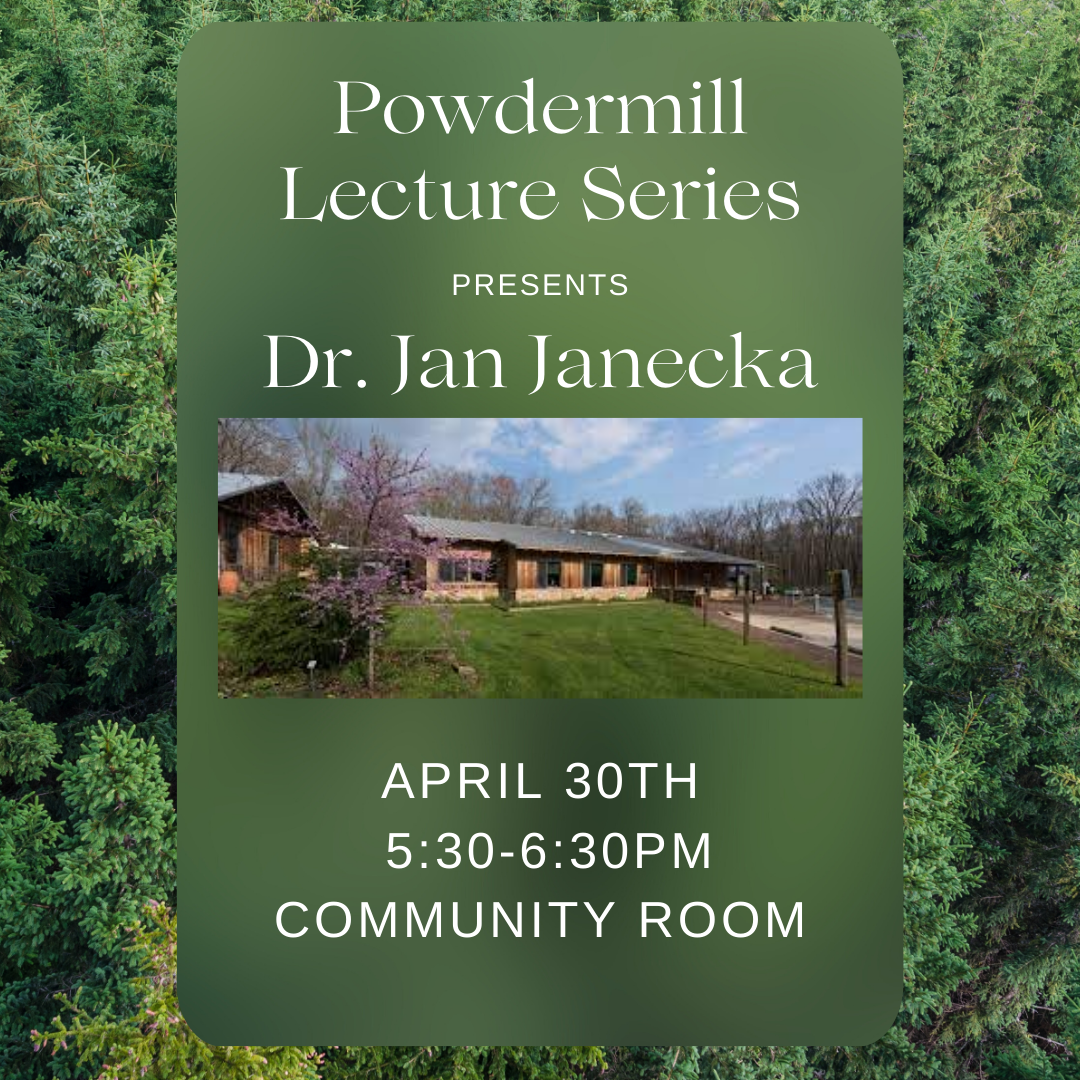Powdermill Lecture Series: Dr. Jan Janecka
 Processing Request
Processing Request
Join us for a riveting lecture series with the scientists of the Powdermill Nature Reserve, the Carnegie Museum of Natural History’s environmental research center. Each month, we will have an expert in their field visit the library to tell us about their research.
April’s lecture will be with Dr. Jan Janecka
Mammal diversity at Powdermill Nature Reserve: Does the legacy of open pit mining have an impact?
Starting in the 1700s, surface mining and removal of forest habitat altered the landscape of Pennsylvania. By the 1960s, mining tapered down and the pressure on forests was alleviated leading to regeneration across much of the state. This contributed to the recovery of many mammals, such as the bobcat, as well as an influx of species like the coyote that historically did not occur here. How is our mining legacy affecting diversity of the Laurel Highlands? Powdermill Nature Reserve is an excellent study site to address these dynamics as it encompasses the remains of an abandoned open pit mine. With the use of ‘camera traps’, we are studying its impact. Mammals including bobcats, coyotes, and black bears, as well as prey species, are being surveyed to provide insight on how abandoned open pit mines affect mammal diversity and occupancy. Currently, there are plans for reclamation of this mine. What impact will the changes brought about have? These are important questions to address not only for Laurel Highlands, but more broadly for the ecosystems of the Northeast and Mid-Atlantic regions. The data being collected at Powdermill provides an opportunity to understand the effects of surface mining, as wells as changes that occur after reclamation.
Speaker Bio: Dr. Janecka is an Associate Professor in the Department of Biological Sciences at Duquesne University and a Research Associate of the Carnegie Museum of Natural History and the Snow Leopard Conserv-ancy. Currently, Dr. Janecka’s lab focuses on landscape genetics of black bears in Pennsylvania, con-servation genetics and genomics of snow leopards, and mammal diversity in the Laurel Highlands. His laboratory has provided genetic testing to the PA Game Commission, US Fish & Wildlife Service, and zoos. Dr. Janecka has conducted research and training in the US, Mongolia, China, Nepal, India, and Bhutan. At Duquesne, he teaches undergraduate and graduate courses in Genetics, Environmental Sampling, and Bioinformatics.

